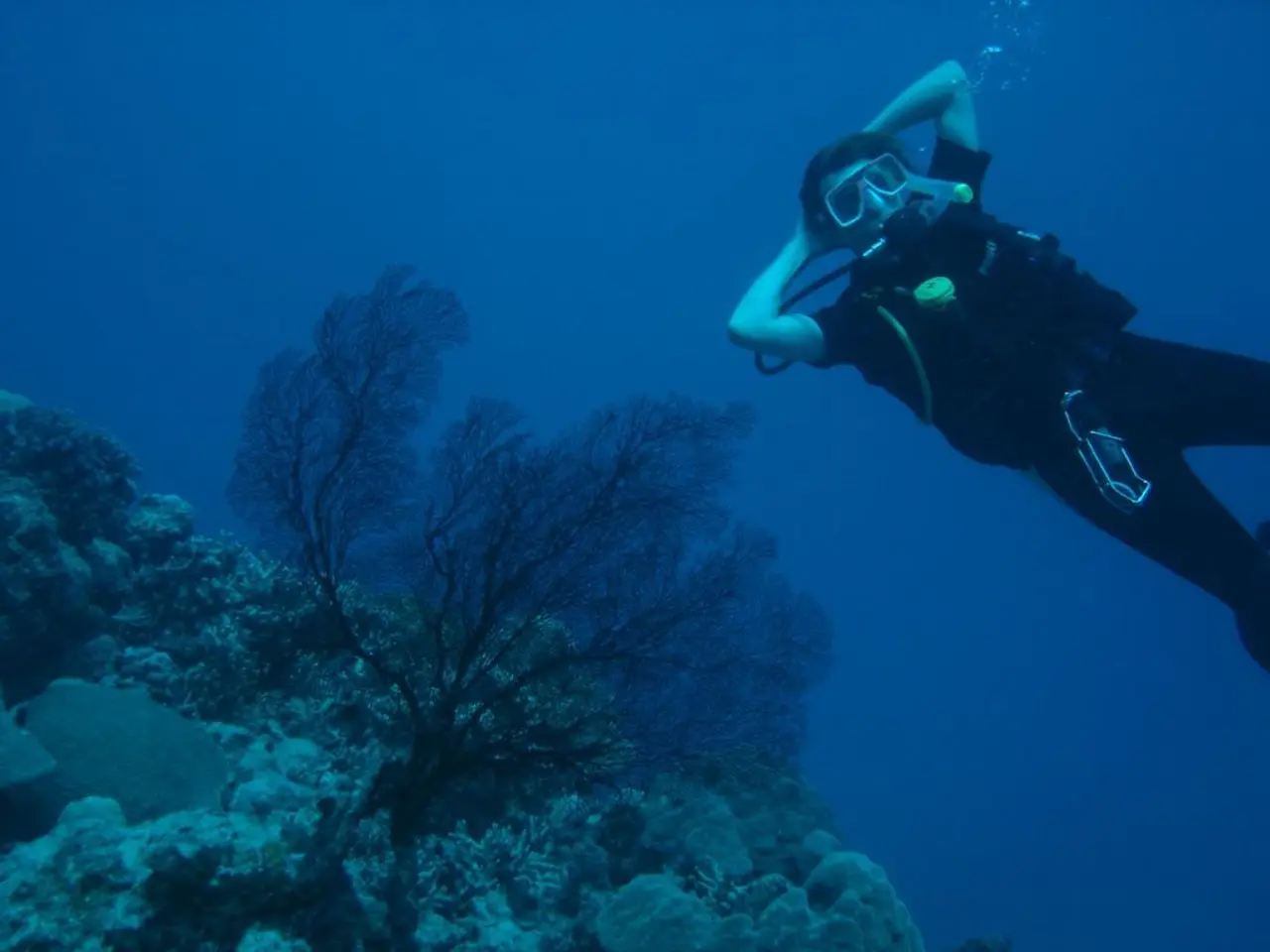Exploration of Underwater Depths
Exploring Greece's Breathtaking Underwater World: A Guide to Responsible Diving
Greece, with its rich history and stunning landscapes, offers a captivating underwater world waiting to be explored. From the crystal-clear waters of the southern coast of Crete to the vibrant reefs of the Saronic and Argolic Gulfs, the country's marine life and geological treasures are a diving enthusiast's dream.
However, it's crucial to approach these delicate ecosystems with care and respect. Here's a guide to responsible diving in Greece, designed to minimize impact on the pristine environment and ensure a rich and rewarding diving experience for future generations.
Crete: A Pristine Underwater Paradise
Crete, an island steeped in myth and history, boasts a diverse underwater landscape. Sheltered bays, dramatic cliffs, and intricate rock formations provide homes for a variety of marine life. Divers must exercise caution to protect the delicate corals and sponges found in its underwater environments.
The Elephant Cave near Chania offers a unique glimpse into the island's prehistoric past with fossilized remains of a long-vanished megafauna. However, exploration should be conducted with sensitivity to preserve this precious geological treasure.
The Saronic and Argolic Gulfs: History and Natural Beauty
The Saronic and Argolic Gulfs, close to ancient shores, offer opportunities for underwater exploration with historical significance. Submerged reefs and rocky outcrops teem with Mediterranean marine life, providing habitats for colorful fish, sponges, and invertebrates.
Divers in the Saronic and Argolic Gulfs must maintain a heightened awareness of potential historical significance and strictly adhere to the principle of leaving all artifacts undisturbed for future study and appreciation.
The Ionian Islands: A World of Light and Shadow
The Ionian Islands present a different character underwater, with caves, grottos, and vibrant reefs. Divers must navigate these dramatic underwater arches and swim-throughs with care to avoid any contact with the fragile marine ecosystems.
Zakynthos, in the Ionian Islands, hosts a significant marine protected area for the loggerhead sea turtle, offering the privilege of observing these creatures in their natural habitat.
The Dodecanese: Maritime History Beneath the Waves
In the Dodecanese, ancient wrecks often lie scattered across the seabed, offering a glimpse into the maritime history of the region. Divers must approach these sites with respect, ensuring they do not disturb the historical artifacts.
The Aegean Sea: Volcanic Wonders
The Aegean Sea, particularly around the Cyclades and Santorini, features underwater landscapes sculpted by volcanic activity. The high salinity of the Aegean Sea provides exceptional buoyancy for underwater exploration.
Minimizing Impact: Key Practices for Responsible Diving
Environmentally conscious diving in Greece involves following specific guidelines to minimize impact on delicate marine ecosystems while exploring underwater sites. Key practices include:
- Avoid touching or disturbing marine life to prevent harm to sensitive species and habitats.
- Stay on designated diving paths to protect coral reefs and underwater flora from physical damage.
- Participate in local clean-up initiatives to help reduce pollution and debris in the water.
- Use reef-safe sunscreen and eco-friendly products to prevent chemical contamination.
- Support and follow eco-friendly diving operators that promote sustainable tourism practices.
- Engage with and advocate for marine conservation efforts in local communities to raise awareness and foster environmental stewardship.
By adhering to these guidelines, divers help preserve the natural beauty and biological richness of submerged Greek realms for future generations, ensuring their underwater adventures have the smallest possible ecological footprint.
For example, in Patmos, Greece, divers are advised to stick to marked underwater paths and avoid contact with marine animals. The island also offers opportunities to join underwater clean-up activities that help maintain ecosystem health. Beyond Greece, the global practice of educating divers on sustainable habits underscores the importance of mindful diving.
Participating in or supporting eco-tourism initiatives in Greek islands like Amorgos and Tilos, which emphasize renewable energy and sustainable practices, can complement responsible diving.
Exploring Greece's underwater realms requires respectful observation and non-interference from divers. By following these guidelines, we can ensure these incredible underwater worlds remain pristine and vibrant for generations to come.
Divers venturing into the pristine underwater environments of Crete should exercise caution to protect the delicate corals and sponges. In the Saronic and Argolic Gulfs, diving with historical significance, divers must maintain a heightened awareness and strictly adhere to the principle of leaving all artifacts undisturbed.
Participating in underwater clean-up initiatives can help minimize pollution and debris in the waters of Patmos, Greece, and complement responsible diving practices globally.








